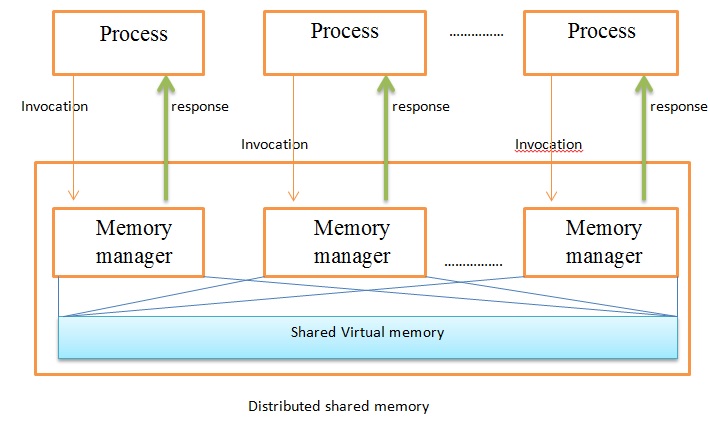Distributed shared memory
Distributed Shared Memory (DSM) is a term used in computer science and refers to the distribution of the main memory of computer clusters . Since the individual CPUs are not located on a common mainboard , there is also no common memory bus over which they could negotiate access to the memory (e.g. using MESI ). Directory-based protocols are therefore typically used.
DSM is an intermediate form of the well-known distributed memory and shared memory architectures. In general, a DSM is understood to mean a virtual shared memory, which means that the user has the view of a shared memory architecture. The actual memory is, however, distributed over different, separate and independent physical memories. A DSM system thus represents a mediation layer between user and hardware.
A distinction is made between the following groups:
- Virtual Shared Memory (VSM), systems with hardware support, i.e. the consistency of the data is partially or completely ensured by hardware mechanisms
- Shared Virtual Memory (SVM), the memory is kept up-to-date without hardware support
- Distributed Shared Memory (DSM), memory management without replication of the data, i.e. there are no copies. This avoids inconsistencies in the main memory (see also NUMA ).

